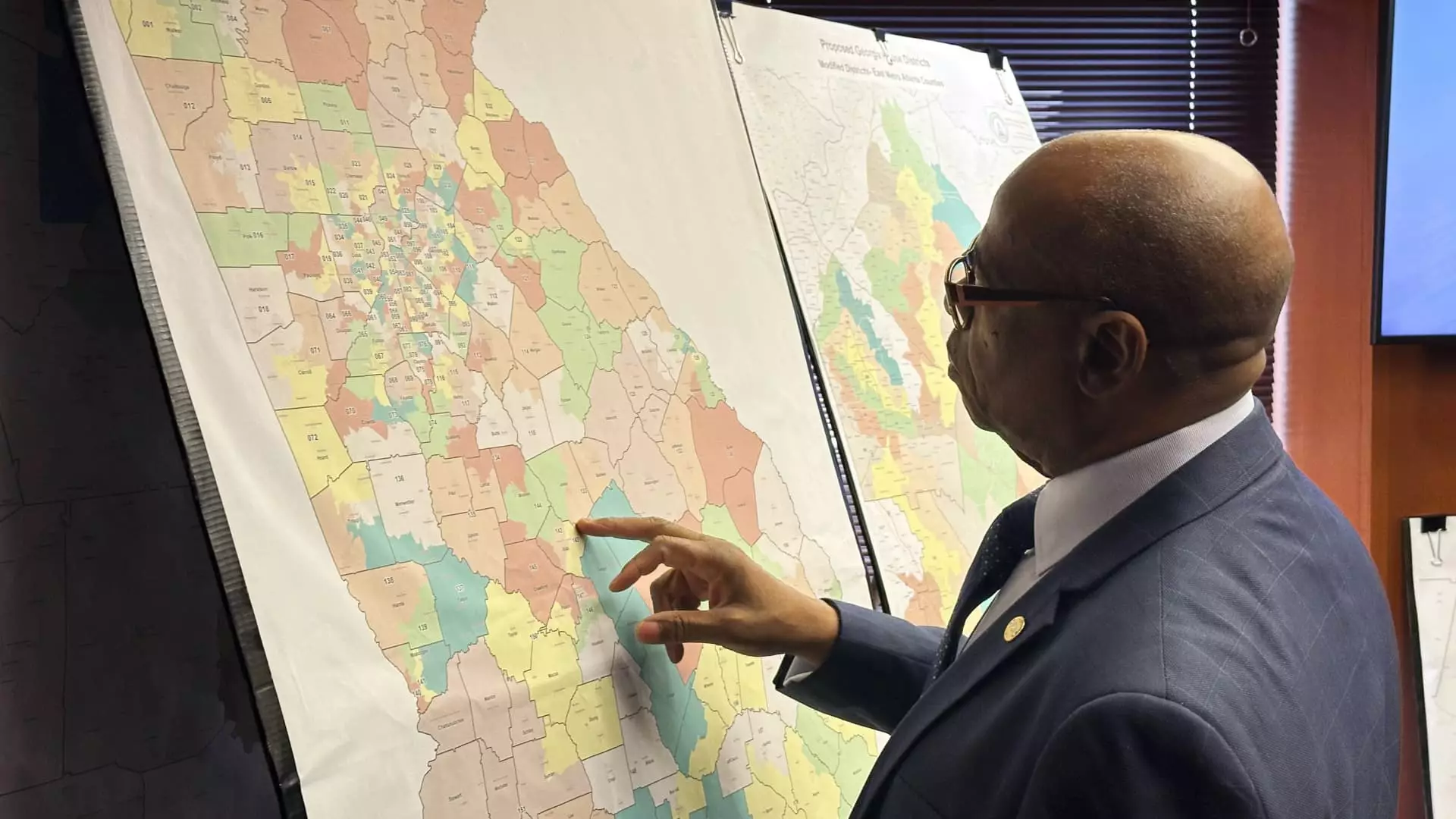Georgia’s redistricting plans have recently come under scrutiny as a federal judge accepted new congressional and legislative voting districts that protect Republican partisan advantages. The judge stated that the creation of new majority-Black voting districts addressed the issue of illegal minority vote dilution. While the decision has drawn criticism, it is important to analyze the implications of these new maps and their potential impact on future elections.
Despite claims that the new maps adequately address the representation of Black voters, concerns have been raised regarding the efficacy of this protection. The mandated inclusion of majority-Black districts may be seen as a reactive response rather than a proactive effort to ensure fair representation. By only adding new districts instead of restructuring existing ones, there are fears that the overall influence of Black voters may remain diluted.
Judge Steve Jones noted that he could not interfere with legislative choices, even if it meant protecting Republican power. This raises questions about the integrity of the redistricting process and whether it prioritizes partisan interests over fair representation. Critics argue that by allowing Republicans to protect their majority, the new maps continue to perpetuate a system that benefits one political party at the expense of others.
One of the key criticisms of the new redistricting plans is the reconfiguration of Democratic-held districts. Democratic U.S. Rep. Lucy McBath’s 7th District in the Atlanta suburbs, for example, has been significantly altered. This raises concerns about the lack of consideration for the existing communities and their potential disenfranchisement. The reshaping of districts in a way that potentially disadvantages certain political parties undermines the democratic principles of fair representation.
Impact on Incumbents
The redistricting plans may also require incumbents like Rep. Lucy McBath to run in new districts for consecutive elections. This can create uncertainty and disrupt the political stability within these districts. By constantly changing the boundaries, the redistricting process can introduce confusion and potentially disadvantage incumbents who have already established themselves in their respective districts. This raises questions about the fairness of redistricting, particularly when it appears to target specific candidates.
Georgia’s redistricting plans, as accepted by a federal judge, have raised concerns about the protection of Black voters, the preservation of Republican power, the restricted representation of Democrats, and the impact on incumbents. The process and outcome of redistricting should prioritize fair representation and the equal influence of all voters, regardless of their political affiliations. It is vital for the public and lawmakers to critically analyze and engage in discussions that ensure a transparent and equitable redistricting process for the benefit of democracy as a whole.

Leave a Reply